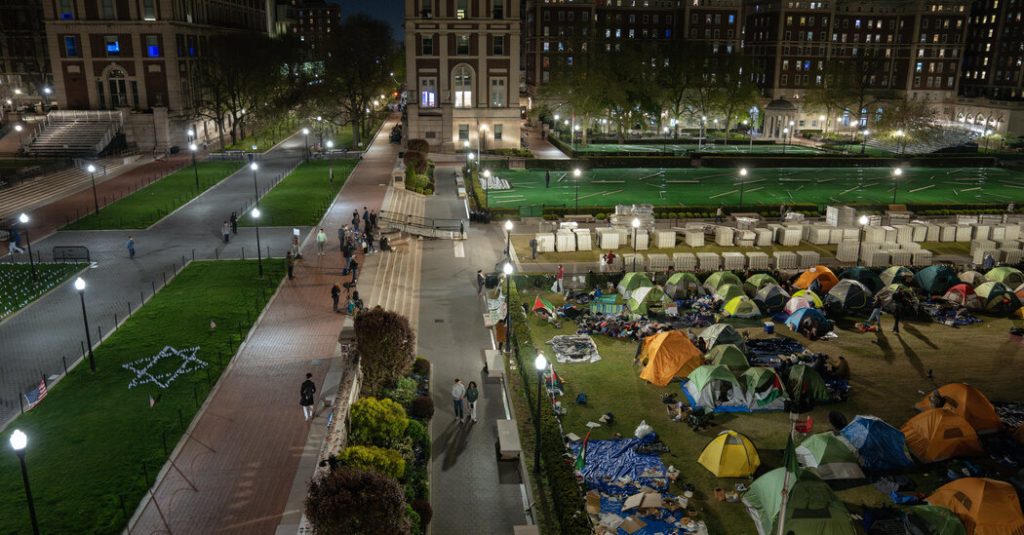In a viral video, a leader of the pro-Palestinian student movement at Columbia University called for the expulsion of three Jewish students who had entered their tent village known as the “Gaza Solidarity Encampment.” The Jewish students were surrounded and targeted by protesters, leading to a tense interaction that left the Jewish students feeling threatened. The incident escalated when a video surfaced of the protest leader making threatening remarks against Zionists, leading to his ban from campus by Columbia officials.
Protests against Israel’s treatment of Palestinians have spread to campuses across the country, with hundreds of demonstrators being arrested. Pro-Palestinian activists see Israel’s actions as genocide against Palestinians and aim to raise awareness of the suffering. However, Jewish students who support Israel feel afraid to walk freely on campus due to denunciations of Zionism and calls for a Palestinian uprising that they see as attacks on Jews. The line between pro-Palestinian political speech and antisemitism has sparked debate among observers and critics of the protests.
The demonstrators at the encampments do not believe they are engaging in antisemitism but rather anti-Zionism, opposing the Jewish state of Israel without hatred towards Jewish people. They argue that activists, including Jewish students, are involved in their movement and challenge the idea that the comfort of Israel’s supporters should be a concern. However, many Jews see this argument as a cover for bigotry. University officials at Columbia have acknowledged the threats and language being used and have vowed to hold students involved in incidents that mock and threaten Jewish people accountable.
Protests on campuses like Columbia, Yale, and the University of Southern California are led by groups like Columbia University Apartheid Divest (CUAD), representing numerous student organizations. The protests call for divestment from companies supporting Israel and amnesty for disciplined protestors. The movement includes supporters of the Boycott, Divestment and Sanctions movement and highlights issues of colonialism and apartheid. Pro-Palestinian student activists cite various reasons for joining the protests, including humanitarian concerns, support for social justice, and solidarity with oppressed groups like the Palestinians.
Outside the pro-Palestinian encampments, accusations of anti-Jewish bigotry and harassment have been raised by political leaders and students, both Jewish and non-Jewish. Some Jewish students feel unsafe on campus due to chants and behavior from protestors. While the protesters maintain they are anti-Zionist and not antisemitic, some Jews feel uncomfortable with demands that ask them to denounce their connection to Israel and their identity. Recent incidents like one where an Israeli student entered the encampment have heightened tensions and raised concerns about safety on campus.
The incident involving Khymani James, the protest leader barred from Columbia University for his threatening remarks, has sparked a broader discussion about the line between free speech and hate speech. While some see his words as an isolated incident, others believe they reflect a deeper issue within the movement. University administrators are facing challenges in addressing the situation to ensure the safety of all students. The role of Jewish and Palestinian student activists in the protests, as well as the larger debate about Israel and Palestine, continues to be a contentious issue on college campuses across the country.


